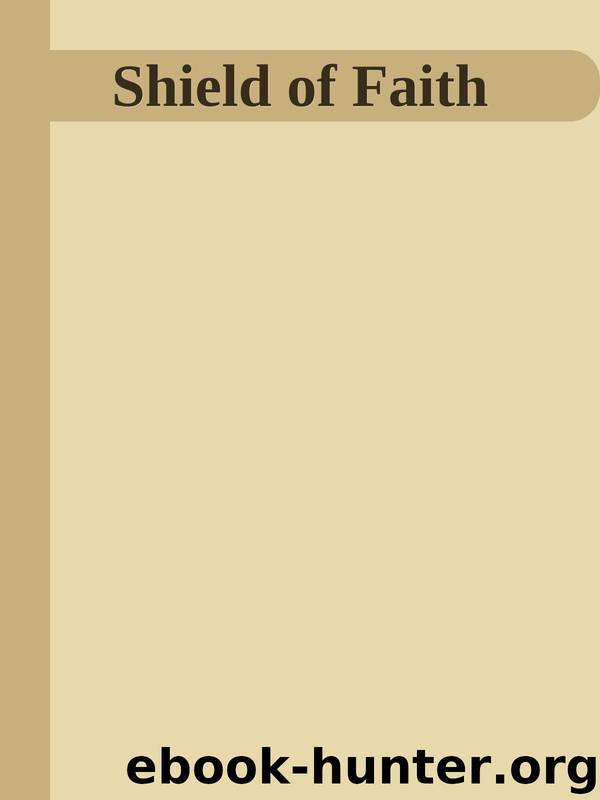Shield of Faith by Unknown

Author:Unknown
Language: eng
Format: epub
Published: 0101-01-01T00:00:00+00:00
At that time the Hudson Institute was performing much civil defense research, and Herman and Bill Brown wandered into the Pentagon to present their latest findings—that even more lives could be saved at even less cost than in the previous estimates. Even though the calculations had not been done on a computer, Kent was delighted. The outcome of the Damage-Limiting Study was that the best way to invest relatively small amounts of money—meaning in the few billions—was through civil defense, not active defense. To most efficiently save American lives in a nuclear war, we invest in civil defense, not in the Army's ABM program. To be sure, as you moved up the curve of devastation, the calculations changed; at some point you needed to invest more either in active defenses or in counterforce; but at the lower cost levels, the range in which McNamara was interested, civil defense was a clear-cut winner, and ballistic missile defense a loser. But civil defense had been killed by the politicians, so what was McNamara's motivation in promoting studies that showed we should first invest in civil defense before more ambitious measures?
The Next War in 1965
In 1965 the probable next war was seen as a complicated affair, at least in its early stages. There would be a crisis, then a show of force; then one side or the other would use conventional weapons; then one side or the other would be losing and would try to repair the failure by escalating to nuclear weapons—first tactically against armies, fleets, and aircraft, then (only in extremis) in a first strike against the other's strategic forces. Each side would try to restrain itself from hitting at the other's cities for fear of reprisal in kind, but neither side could be certain that the other would exercise such restraint, and neither side could be certain that it could restrain itself.
But if the war "went nuclear," the United States would win at any level or in any theater of combat. The Soviets knew this, and were not about to cast the gage. But even if the United States won, a war that escalated to city exchanges would grievously harm America. The Americans knew this, and were not about to cast the gage either. Still, the United States was better off in 1965 than in 1955. In the age of Curtis LeMay, the United States had had to strike first to surely win. As a consequence of the programs begun under Eisenhower and brought to fruition under McNamara, the United States could surely win by striking second.
"Win!" with such terrible losses? Yes, winning is getting what you want from the war. No one thought you could win a world war and get off without blood.
The Army Gets Reinforcements
The final defeat of Nike-Zeus demonstrated that the Army needed analytical reinforcements. The material was immediately at hand. One of the largest of the postwar "think tanks" was (and is) the Stanford Research Institute. But SRI was not a coherent whole, an intellectual
Download
This site does not store any files on its server. We only index and link to content provided by other sites. Please contact the content providers to delete copyright contents if any and email us, we'll remove relevant links or contents immediately.
The Five People You Meet in Heaven by Mitch Albom(3569)
The Secret Power of Speaking God's Word by Joyce Meyer(3220)
Real Sex by Lauren F. Winner(3023)
Name Book, The: Over 10,000 Names--Their Meanings, Origins, and Spiritual Significance by Astoria Dorothy(2987)
The Holy Spirit by Billy Graham(2953)
0041152001443424520 .pdf by Unknown(2846)
How The Mind Works by Steven Pinker(2816)
ESV Study Bible by Crossway(2778)
Ancient Worlds by Michael Scott(2688)
Churchill by Paul Johnson(2587)
The Meaning of the Library by unknow(2572)
The ESV Study Bible by Crossway Bibles(2551)
The Gnostic Gospels by Pagels Elaine(2531)
MOSES THE EGYPTIAN by Jan Assmann(2417)
Jesus by Paul Johnson(2363)
City of Stairs by Robert Jackson Bennett(2354)
The Complete Dead Sea Scrolls in English (7th Edition) (Penguin Classics) by Geza Vermes(2283)
The Nativity by Geza Vermes(2231)
Ancient Near Eastern Thought and the Old Testament by John H. Walton(2226)
